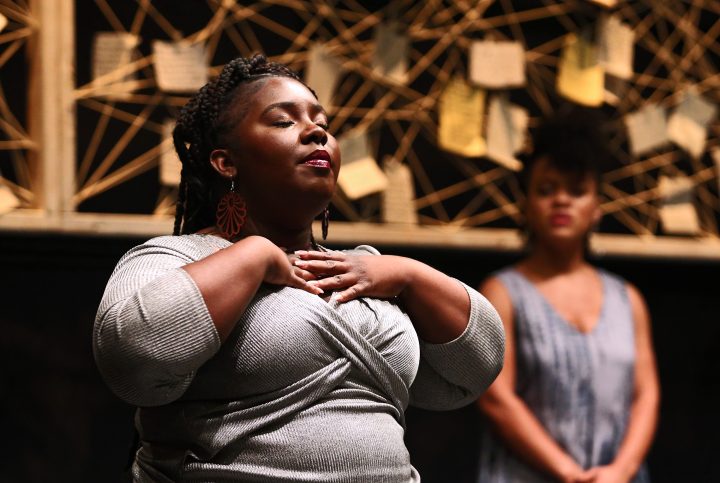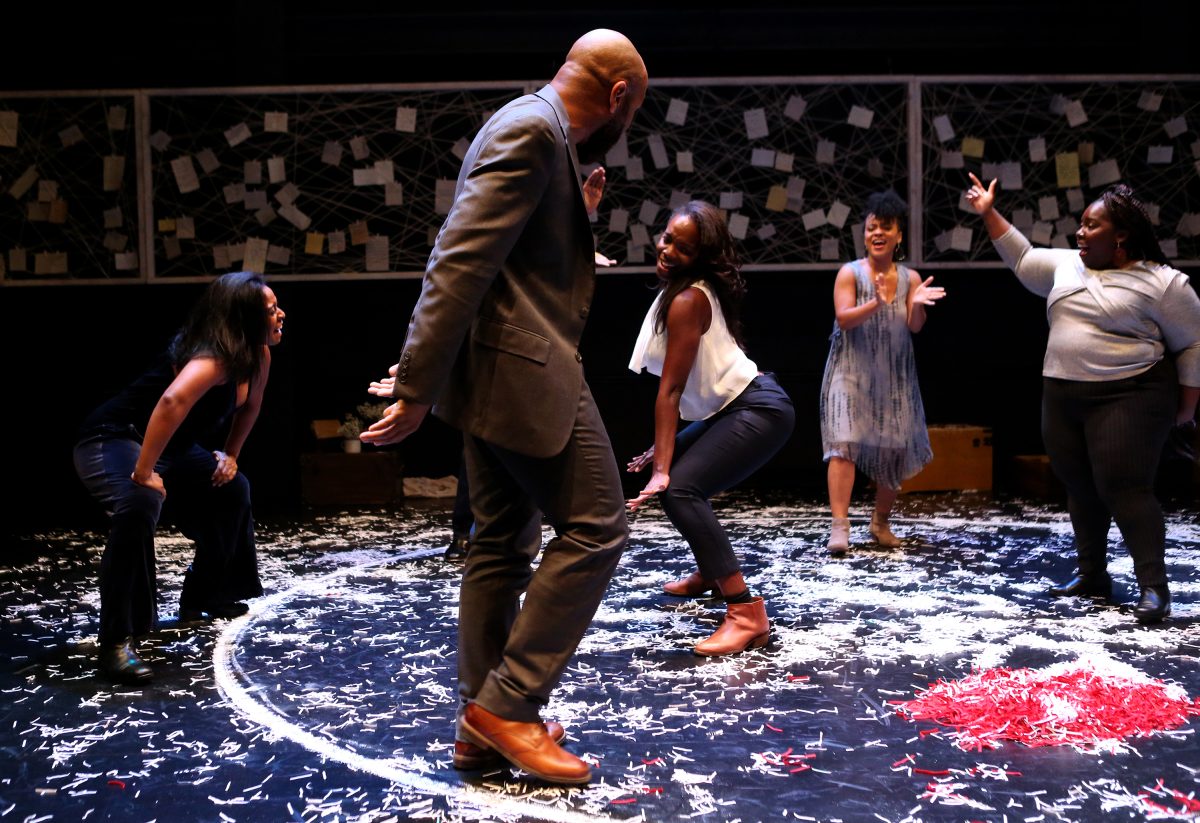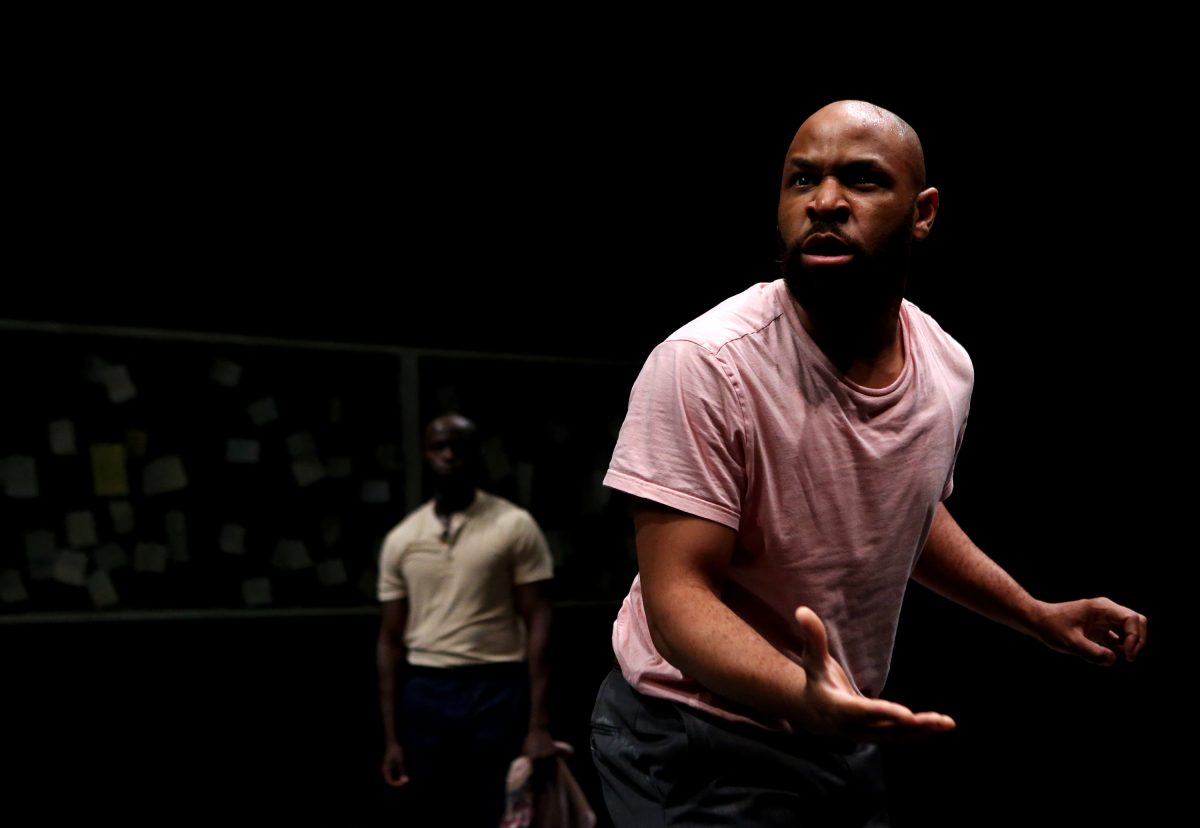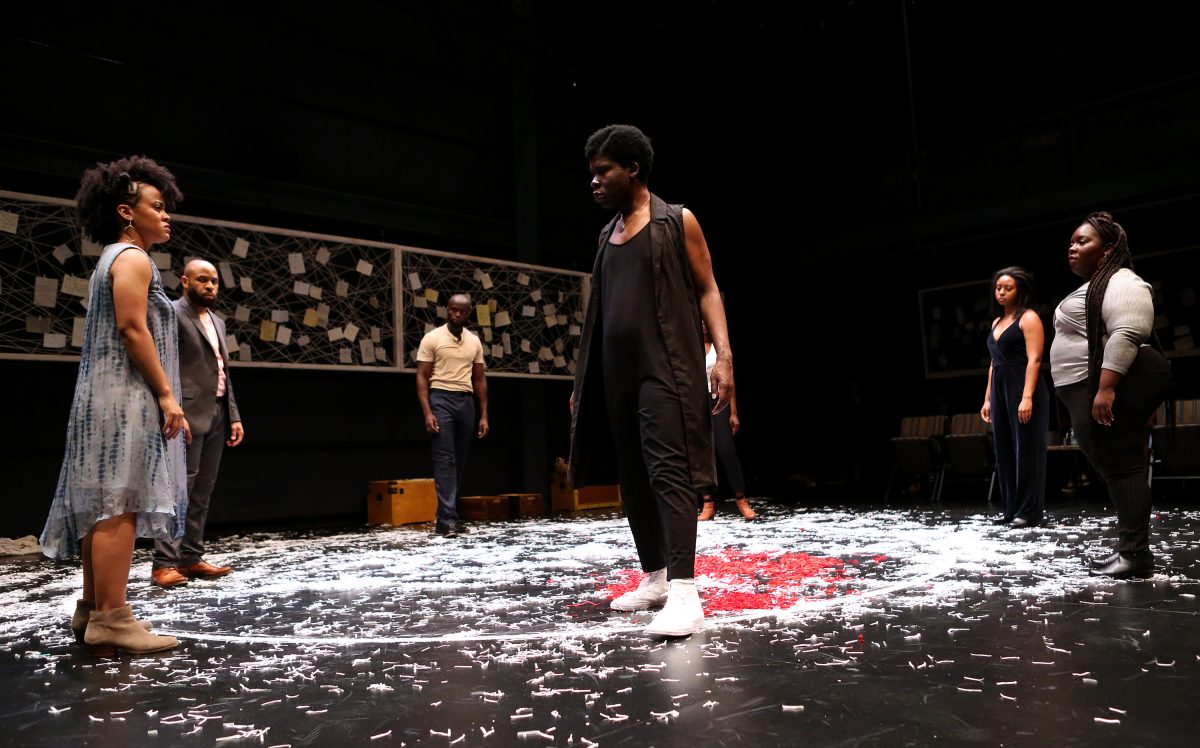
Part movement theater, part immersive workshop, Aleshea Harris’s What to Send Up When It Goes Down poignantly exemplifies the integration of a social justice model in theatrical performance. Originally staged for the Brooklyn Botanical Garden, the play was moved to BAM Fisher as vaccination rates increased and city-wide restrictions lifted. Opening just one year after racial uprisings surged, What to Send Up When It Goes Down is a prescient re-introduction to live performance.
Harris’s rich tapestry of movement and language echoes that of contemporary theater-makers who examine the specter of Black grief through the lens of ritual and hybrid memoir. (Nia Witherspoon’s The Dark Girl Chronicles, a Black feminist performance trilogy responding to state violence, comes to mind.) Director Whitney White enlivens the technique of “forum theater,” popularized by Augusto Boal, with elements of African American tradition such as rhythmic stepping and choral song.

Prior to the show, audience members moved through an altar installation called “Black Lives Lost,” which displayed countless images of people ranging in age and gender, each killed in senseless acts of racist violence. The altar also featured a personal letter from the playwright and commemorative black ribbons for audience members, which set a staggering tone for the play. An ensemble member, “Two” (Kalyne Coleman), guided the audience inside the theater, towards tables and chairs (spaced generously apart), from which the all-Black cast led us in sharing our names and a word on how we were feeling. This was followed by a grounding call and response led by “Eight/Song Leader” (Denise Manning), “Seven” (Javon Q. Minter) and “Three” (Alana Raquel Bowers).
Throughout, What to Send Up When It Goes Down holds Black people at its center — the space it creates invites unique moments of commiseration, anger, and helplessness with no apologies, asking white and non-POC people to bear witness. Comprised of overlapping vignettes depicting Black people discussing their fraught interactions and relationships with white people, the play cycles through three movements. Gestures become more exaggerated and dialogue heightens as the play progresses. Notably, within this framework, monologues become occasionally difficult to decipher, as audience members are shuffled between scenes.

In a trio scene, a Black woman named “Made,” (Rachel Christopher) — an alternative to “maid,” as a “woman of her own devising” — a Black man named “Driver,” (Beau Thom) and the only white character, a woman aptly named “Miss” (played by Ugo Chukwu and signified by elbow length white gloves and a long string of pearls) subvert archetypal roles and make reference to the dynamics among enslaved individuals. In this scene, the actors also serve as narrators, chiming in to reveal searing inner thoughts between lines, in a macabre role play. (“Made slaps the shit out of Miss.”) This style provides an acerbic, timely critique on anti-racism workshops, whose educational purposes are geared towards equity but can often abandon those most vulnerable. “Miss’s” persistent mantra, “My hands are clean” speaks volumes.
Occasionally bordering on horror, the play’s satirical use of violence is presented as a liberating and rightful response – enacting much of the interiority that is often repressed or frankly, impossible for Black people to express publicly.
Unsurprisingly, portraying such atrocities in real time will take a toll. A few times throughout the play, members of the ensemble would break down, releasing tears and gasps in stark moments of realization. The familiar consonance of voices in a theater — a first in many months for me — and the resonant subject matter soothed a long-standing ache. As many crave normalcy and a return to reliable routines, What to Send Up When It Goes Down is a potent reminder that the status quo will always present its own threats to Black life.

What to Send Up When it Goes Down, by Aleshea Harris, continues through July 11 at BAM Fisher. The play is directed by Whitney White and presented by BAM and Playwrights Horizons, in association with The Movement Theatre Company. The play will be restaged at Playwrights Horizons in Fall 2021.
0 Commentaires